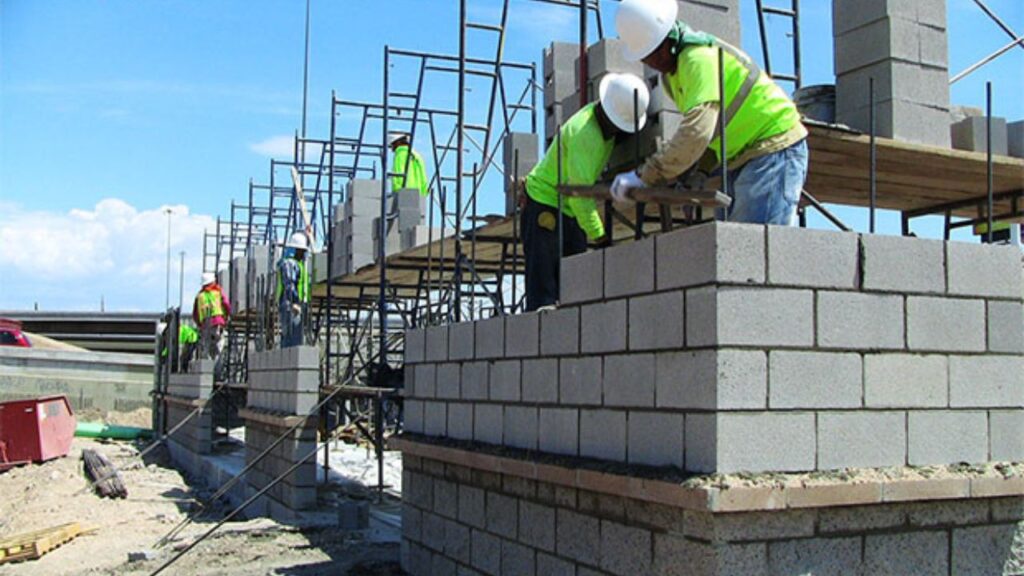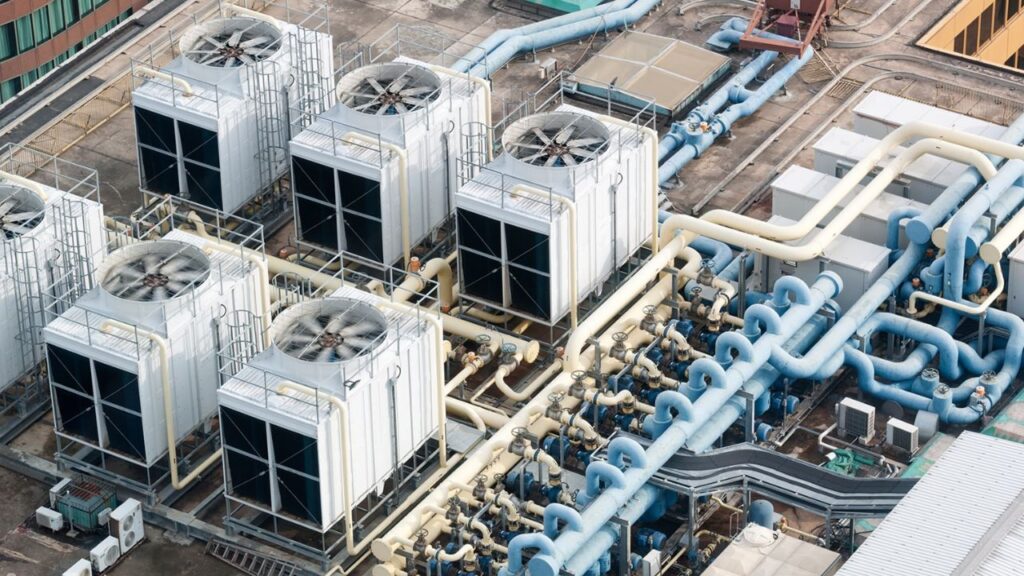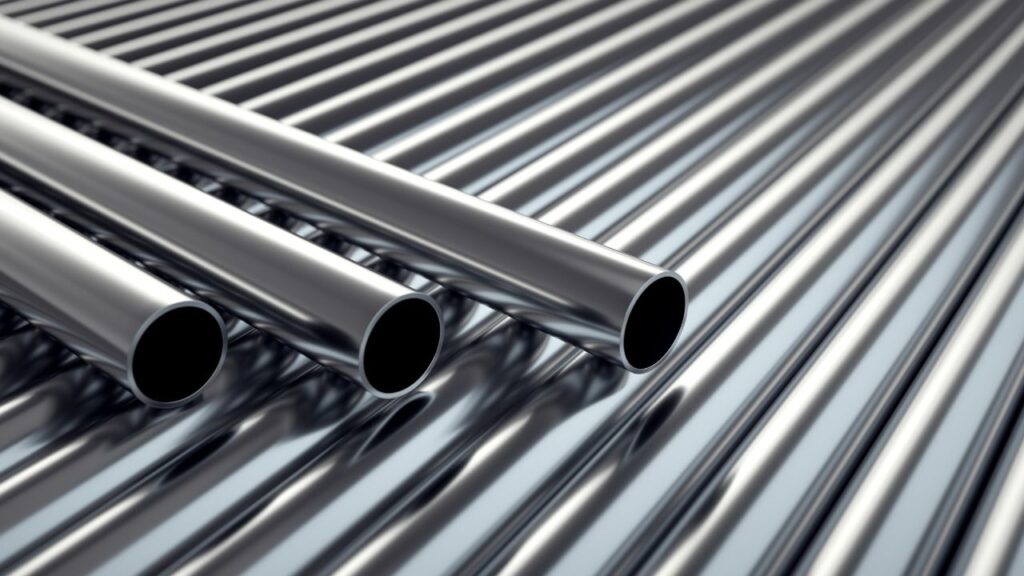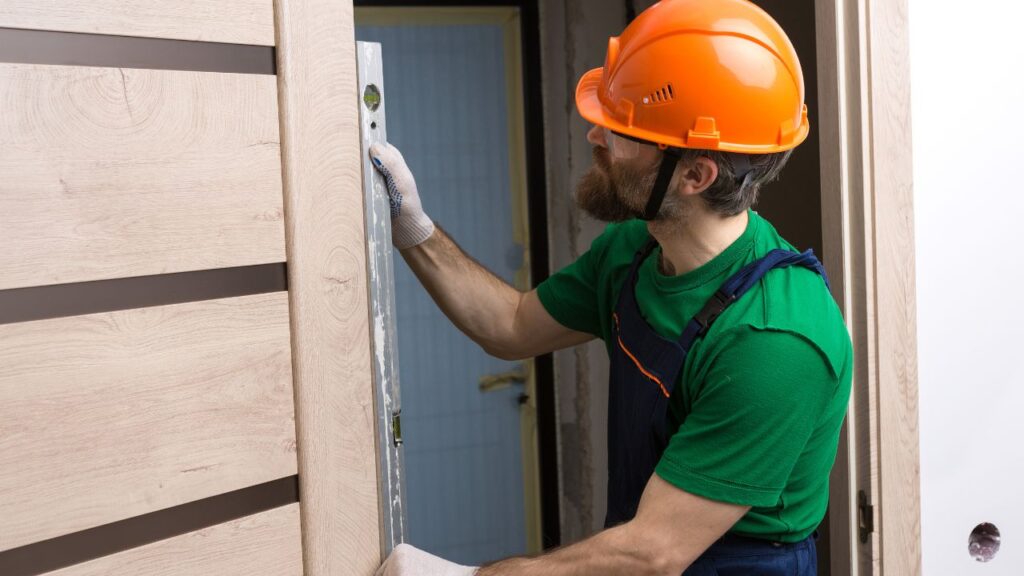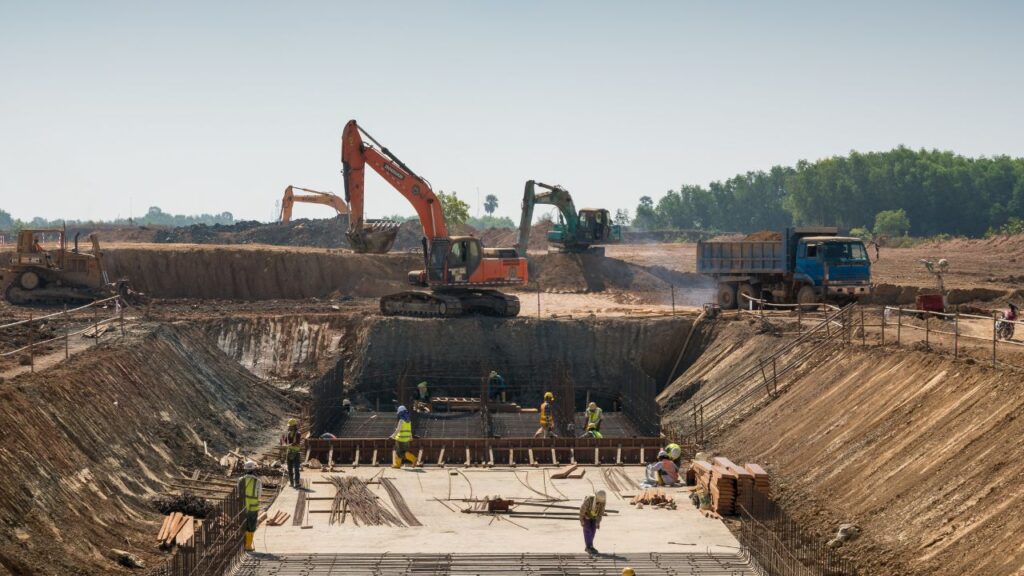Pumps are essential components in a wide range of applications, from residential water systems to industrial processes. Whether you need a pump for irrigation, sewage management, HVAC systems, or any other purpose, understanding the costs involved in purchasing and installing a pump is crucial for effective budgeting and planning. Estimate Florida Consulting provides expert cost estimator services to help you plan and execute your pump installation or replacement project with precision, ensuring that your project stays within budget while delivering optimal performance and efficiency.
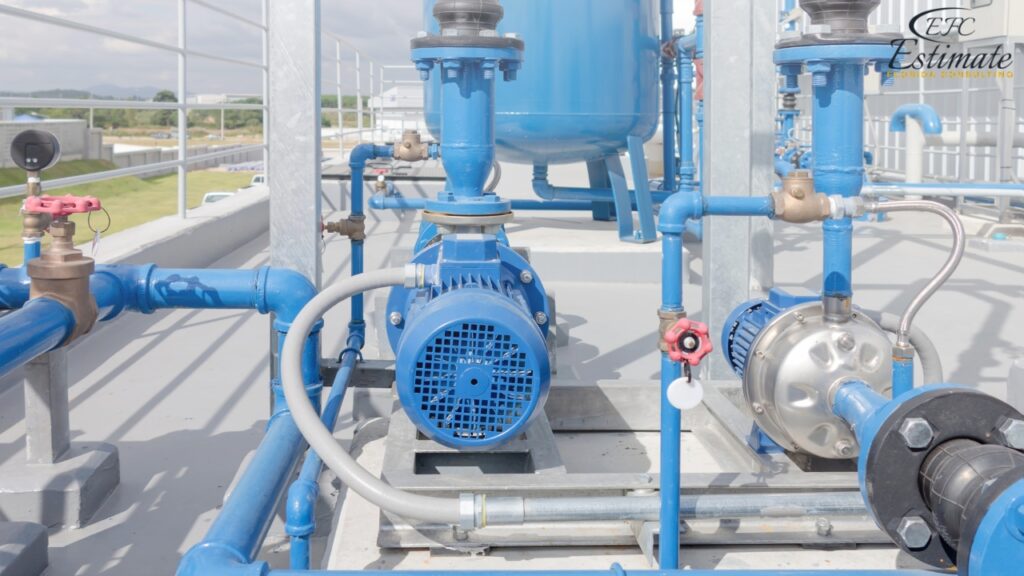
How Much Does a Pump Cost?
The cost of a pump can vary significantly depending on several factors, including the type of pump, its capacity, the complexity of the installation, and any additional features or accessories required. On average, pump costs can range from $500 to $15,000 or more, depending on the application and specifications. Understanding these costs is essential for effective budgeting and planning, ensuring that your project stays within financial constraints while achieving the desired results.
Pump Cost by Type
The cost of a pump can vary widely depending on its type, capacity, and application. Each type of pump is designed for specific purposes, which influences its price and installation complexity.
Pump Type | Price per Unit (Material Only) | Price per Unit (Installed) |
Submersible Pump | $400 – $1,500 | $800 – $3,000 |
Centrifugal Pump | $300 – $2,000 | $700 – $4,000 |
Booster Pump | $200 – $800 | $600 – $1,500 |
Sump Pump | $150 – $400 | $300 – $800 |
Sewage Pump | $400 – $1,200 | $800 – $2,500 |
Well Pump | $500 – $2,000 | $1,000 – $4,000 |
Pool Pump | $300 – $1,200 | $600 – $2,500 |
Submersible Pump
Submersible pumps are designed to operate underwater and are commonly used in wells, sewage systems, and drainage applications. The cost of a submersible pump typically ranges from $400 to $1,500 for the unit, with installation costs ranging from $800 to $3,000. These pumps are known for their efficiency and ability to handle water with debris, making them ideal for both residential and industrial applications. Installation may require specialized equipment to lower the pump into the well or tank, adding to the overall cost.
Centrifugal Pump
Centrifugal pumps are widely used in various applications, including water supply, irrigation, and industrial processes. These pumps work by converting rotational energy into fluid flow and are available in various sizes and capacities. The cost of a centrifugal pump typically ranges from $300 to $2,000 for the unit, with installation costs ranging from $700 to $4,000. Centrifugal pumps are versatile, reliable, and easy to maintain, making them a popular choice for both residential and commercial use. Installation costs may vary depending on the complexity of the system and the need for additional components such as piping, valves, and controls.
Booster Pump
Booster pumps are used to increase water pressure in residential, commercial, and industrial systems. These pumps are often installed to ensure consistent water pressure in multi-story buildings, irrigation systems, or when water pressure from the main supply is insufficient. The cost of a booster pump typically ranges from $200 to $800 for the unit, with installation costs ranging from $600 to $1,500. Installation may involve integrating the pump with existing plumbing systems and may require additional components like pressure tanks and control panels. Booster pumps are essential for ensuring adequate water pressure and flow in various applications, making them a valuable addition to many systems.
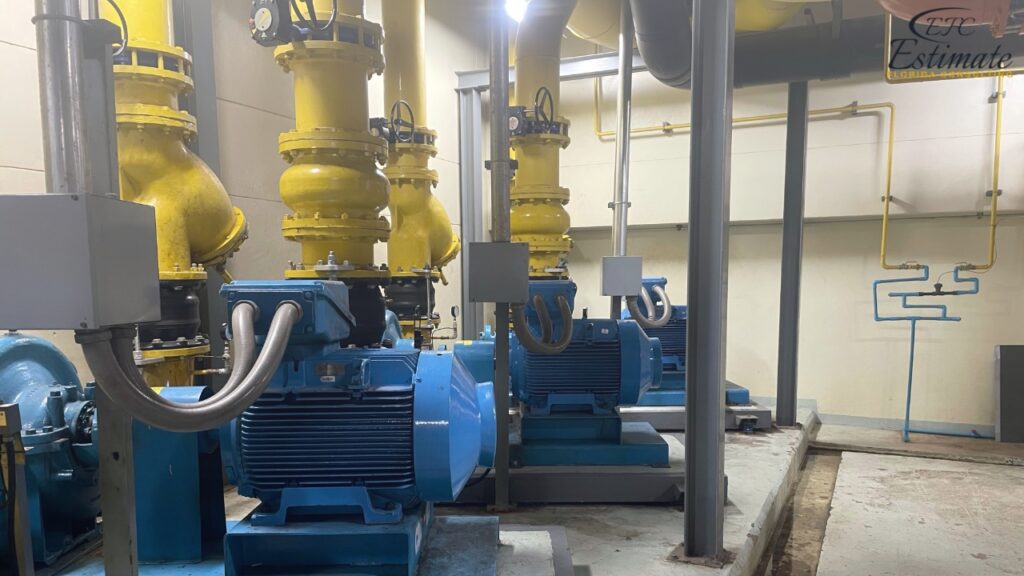
Sump Pump
Sump pumps are commonly used in basements and crawl spaces to remove accumulated water and prevent flooding. These pumps are typically installed in a sump pit, where they automatically activate when water levels rise. The cost of a sump pump typically ranges from $150 to $400 for the unit, with installation costs ranging from $300 to $800. Sump pump installation is relatively straightforward, but may require electrical work and drainage system modifications. These pumps are crucial for protecting homes from water damage, particularly in areas prone to heavy rainfall or high groundwater levels.
Sewage Pump
Sewage pumps are designed to handle solid waste and wastewater in residential and commercial sewage systems. These pumps are typically installed in a sewage basin and are capable of pumping waste to the main sewer line or septic tank. The cost of a sewage pump typically ranges from $400 to $1,200 for the unit, with installation costs ranging from $800 to $2,500. Installation may involve significant plumbing work, including connecting the pump to the sewage system and ensuring proper venting. Sewage pumps are essential for homes with basements or properties that are lower than the main sewer line, preventing backups and maintaining proper waste management.
Well Pump
Well pumps are used to draw water from underground sources and are a critical component of private water systems in rural and remote areas. These pumps come in various types, including jet pumps, submersible pumps, and hand pumps, each suited to different well depths and water needs. The cost of a well pump typically ranges from $500 to $2,000 for the unit, with installation costs ranging from $1,000 to $4,000. Installation costs can vary significantly depending on the depth of the well, the type of pump, and the complexity of the system. Well pumps are essential for providing a reliable water supply, and proper installation is key to ensuring long-term performance and efficiency.
Pool Pump
Pool pumps are used to circulate water through the filtration system, keeping the pool clean and safe for swimming. These pumps are available in various sizes and capacities, depending on the size of the pool and the flow rate required. The cost of a pool pump typically ranges from $300 to $1,200 for the unit, with installation costs ranging from $600 to $2,500. Installation may involve connecting the pump to the pool’s plumbing system, ensuring proper electrical connections, and setting up timers or control systems. A well-functioning pool pump is essential for maintaining water clarity and preventing algae growth, making it a critical component of any pool system.
Videos For Mechanical Construction
Medupi Water Pump Station
Install a Sump Pump
Heat Pump & Furnace
Skilled Mechanical Experts?
- Skilled Mechanical Experts for Commercial Projects
- Structural Mechanical Systems for Commercial Buildings
- Retail Building Mechanical Fit-Outs and Custom Installations
- Mechanical Installation for Office Buildings and Commercial Spaces
- Mechanical Repair, Maintenance, and Restoration Services
- Custom Mechanical Work for Architectural Features
Pump Cost by Project Type
The cost of a pump can also vary depending on the specific project, such as whether you’re installing a new system, replacing an old pump, or upgrading an existing system. Each project type presents unique challenges and costs that need to be considered.
Project Type | Cost Range |
New Pump Installation | $600 – $4,000 |
Pump Replacement | $500 – $3,500 |
Pump System Upgrade | $800 – $5,000 |
Pump Maintenance and Repair | $100 – $1,500 |
Emergency Pump Service | $200 – $1,000 |
New Pump Installation
Installing a new pump typically costs between $600 and $4,000, depending on the type of pump, the complexity of the installation, and any additional components required. New installations often involve site preparation, such as digging, plumbing, and electrical work, to ensure the pump operates effectively and efficiently. The type of pump, its intended application, and the conditions of the installation site will all influence the overall cost. Investing in a high-quality pump and professional installation ensures long-term reliability and optimal performance.
Pump Replacement
Replacing an old or malfunctioning pump typically costs between $500 and $3,500, depending on the type of pump and the condition of the existing system. Replacement costs are generally lower than new installations because much of the infrastructure, such as piping and electrical connections, may already be in place. However, if the old pump caused damage or if the system needs significant upgrades to accommodate a new pump, additional costs may be incurred. Replacing an outdated pump with a modern, energy-efficient model can reduce operating costs and improve system performance.
Pump System Upgrade
Upgrading an existing pump system, such as adding a booster pump, increasing capacity, or integrating advanced controls, typically costs between $800 and $5,000. Upgrades can improve the efficiency, performance, and reliability of your pump system, particularly in situations where demand has increased or where the existing system is no longer meeting needs. Common upgrades include installing variable speed drives, enhancing automation, or adding redundancy to critical systems. Upgrading your pump system can extend its lifespan, reduce maintenance requirements, and provide better control over operations, making it a valuable investment.
Pump Maintenance and Repair
Regular maintenance and timely repairs are essential for keeping pumps in good working condition and preventing costly breakdowns. Maintenance and repair costs typically range from $100 to $1,500, depending on the type of pump and the extent of the work required. Maintenance tasks may include cleaning, lubrication, seal replacement, and performance checks. Repairs may involve fixing leaks, replacing worn parts, or addressing electrical issues. Investing in regular maintenance helps prolong the life of your pump and ensures that it operates efficiently, reducing the likelihood of unexpected failures and costly emergency repairs.
Emergency Pump Service
In the event of a pump failure, emergency service may be required to restore operation and prevent damage or disruption. Emergency pump service typically costs between $200 and $1,000, depending on the urgency, time of day, and the complexity of the repair. Emergency service is often more expensive than regular maintenance or scheduled repairs due to the immediate response required and the potential for after-hours work. Having a maintenance plan or service agreement in place can help mitigate the costs and ensure prompt attention when emergencies arise, minimizing downtime and protecting your system.

Additional Costs and Considerations
In addition to the cost of the pump and installation, several other factors can influence the total cost of your project. These include energy efficiency upgrades, permits, and ongoing maintenance.
Additional Cost | Estimated Cost |
Energy Efficiency Upgrades | $200 – $1,000 |
Permits and Inspection Fees | $100 – $500 |
Control Systems Integration | $500 – $2,000 |
Annual Maintenance Plan | $150 – $500 per year |
Pump Housing and Protection | $300 – $1,200 |
Energy Efficiency Upgrades
Upgrading your pump system with energy-efficient components or features, such as variable speed drives, can reduce operating costs and extend the lifespan of the pump. Energy efficiency upgrades typically cost between $200 and $1,000, depending on the type of pump and the desired level of efficiency. These upgrades can lead to significant long-term savings on energy bills, especially for pumps that operate continuously or handle large volumes of fluid. In addition to reducing energy consumption, efficiency upgrades can also improve the performance and reliability of your pump system.
Permits and Inspection Fees
Depending on your location and the type of installation, you may need permits and inspections to ensure your pump system meets local building codes and regulations. Permits and inspection fees typically range from $100 to $500. It’s important to consult with your contractor or local authorities to determine what permits are required for your project. Ensuring compliance with local regulations helps prevent potential fines, legal issues, and complications during future property sales or inspections.
Control Systems Integration
Integrating advanced control systems with your pump can provide better automation, monitoring, and management capabilities, improving overall system performance and efficiency. Control systems integration typically costs between $500 and $2,000, depending on the complexity of the system and the level of automation desired. Advanced control systems can include features such as remote monitoring, automated start/stop functions, pressure and flow sensors, and alarm notifications. These systems are particularly valuable in industrial or commercial applications where precise control and monitoring are critical to operations.
Annual Maintenance Plan
Regular maintenance is crucial for keeping your pump system in good working condition and preventing costly breakdowns. An annual maintenance plan typically costs between $150 and $500 per year and includes services such as inspections, cleaning, lubrication, and performance checks. Maintenance plans often provide additional benefits, such as priority service, discounts on repairs, and extended warranties. Investing in a maintenance plan ensures that your pump system receives the necessary care to operate efficiently and reliably over the long term, reducing the risk of unexpected failures and costly emergency repairs.
Pump Housing and Protection
In some installations, particularly those exposed to harsh environmental conditions, additional protection for the pump may be required. Pump housing and protection typically cost between $300 and $1,200, depending on the type of enclosure or protection needed. This can include weatherproof enclosures, protective covers, or security measures to prevent unauthorized access or tampering. Proper housing and protection help extend the life of your pump by shielding it from the elements, reducing wear and tear, and preventing damage from debris, moisture, or vandalism.
90% More Chances to Win Mechanical Bids with Our Estimate
Estimating the Total Cost
To provide a clearer understanding of what to expect, here’s an example of estimating the cost for installing a submersible well pump for residential water supply, including the pump, installation, and additional accessories.
- Submersible Pump: $1,200 – $4,000
- Professional Installation: $1,000 – $2,500
- Accessories (Pressure Gauge, Valves, Filters): $300 – $1,000
- Power Supply: $800 – $2,000
Cost Component | Low Estimate | High Estimate |
Submersible Pump | $1,200 | $4,000 |
Professional Installation | $1,000 | $2,500 |
Accessories | $300 | $1,000 |
Power Supply | $800 | $2,000 |
Total Estimated Cost | $3,300 | $9,500 |
This example demonstrates how various components contribute to the overall cost of your pump installation project. By understanding these costs, you can better plan your budget and ensure that all aspects of the project are covered, leading to a successful and reliable pump system. Proper planning also helps you avoid unexpected expenses, ensuring that your project stays within budget. The detailed breakdown provides transparency and allows you to see exactly where your money is being spent, helping you make informed decisions throughout the process.
Factors Influencing Pump Costs
The cost of a pump can vary widely depending on several factors, including the type of pump, the size and capacity, installation complexity, and additional features. Understanding these factors will help you estimate the total cost of your pump installation and make informed decisions that align with your budget.
Type of Pump
The type of pump you need will significantly influence the overall cost. Different pumps are designed for specific applications, each with its own set of performance characteristics and price points. The most common types of pumps include centrifugal pumps, submersible pumps, and positive displacement pumps.
Type of Pump | Average Cost (Including Installation) |
Centrifugal Pump | $500 – $5,000 |
Submersible Pump | $800 – $6,000 |
Positive Displacement Pump | $1,200 – $10,000 |
Centrifugal Pump
Centrifugal pumps are widely used in applications such as water supply, irrigation, and HVAC systems. They are relatively simple in design, which makes them cost-effective and easy to maintain. The cost of a centrifugal pump, including installation, typically ranges from $500 to $5,000, depending on the size, capacity, and materials. These pumps are ideal for applications where a steady flow of liquid is required, and they can handle a wide range of fluid types, including water, chemicals, and slurries.
Submersible Pump
Submersible pumps are designed to operate while fully submerged in the fluid they are pumping, making them ideal for applications such as wastewater management, well water extraction, and drainage systems. The cost of a submersible pump typically ranges from $800 to $6,000, including installation. These pumps are known for their efficiency and quiet operation, as the fluid provides cooling and reduces noise. Submersible pumps are often used in challenging environments where reliability and durability are critical.
Positive Displacement Pump
Positive displacement pumps are used in applications that require precise control over fluid flow, such as chemical processing, food and beverage production, and hydraulic systems. These pumps typically cost between $1,200 and $10,000, depending on the complexity, materials, and capacity. Positive displacement pumps are capable of handling high-viscosity fluids and delivering consistent flow rates, making them essential in processes where accuracy and reliability are paramount.

Size and Capacity
The size and capacity of the pump are critical factors in determining the cost. Larger pumps with higher flow rates and pressure capabilities will generally be more expensive than smaller, lower-capacity models. It’s important to choose a pump that matches the specific requirements of your application, as undersized pumps may struggle to perform, while oversized pumps can lead to inefficiencies and higher operating costs.
Flow Rate (GPM) | Estimated Cost Range |
Up to 50 GPM | $500 – $2,500 |
50 – 200 GPM | $2,500 – $6,000 |
200 – 500 GPM | $6,000 – $15,000 |
Over 500 GPM | $15,000 – $50,000+ |
Choosing the right size and capacity for your pump ensures that it operates efficiently and meets the demands of your system. For example, a pump used for irrigation in a large agricultural field will require a much higher flow rate and capacity than a pump used for residential well water. Consulting with a pump specialist or engineer can help you determine the appropriate size and capacity for your specific application, ensuring optimal performance and cost-effectiveness.
Installation Complexity
Installation costs are another significant factor in the overall expense of your pump system. Professional installation is highly recommended for most pump systems, as it ensures proper setup, alignment, and connection to the rest of the system. Installation costs can vary depending on the complexity of the system, the type of pump, and the location.
Installation Type | Average Cost |
Professional Installation | $500 – $3,000 |
DIY (Materials Only) | Varies (Not Recommended) |
Professional Installation
Hiring professionals to install your pump ensures that it is set up correctly, with proper alignment, secure connections, and appropriate power supply. Professional installers have the expertise to handle complex installations, such as submersible pumps or systems that require precise calibration. The cost of professional installation typically ranges from $500 to $3,000, depending on the complexity of the installation and the type of pump. Proper installation is crucial for the long-term reliability and efficiency of the pump, reducing the risk of issues such as leaks, misalignment, or premature wear.
DIY Installation
While some simple pump systems may be suitable for DIY installation, this is generally not recommended for most applications. Improper installation can lead to a range of problems, including reduced efficiency, increased wear and tear, and potential safety hazards. If you do choose to install the pump yourself, it’s essential to follow the manufacturer’s instructions carefully and ensure that you have the necessary tools and expertise to complete the job safely and correctly.
Additional Costs
Beyond the cost of the pump and installation, there are additional expenses to consider, such as accessories, maintenance, and power supply. These costs can vary depending on the specifics of your system and the requirements of your application.
Accessories Costs
Depending on your application, you may need additional accessories such as pressure gauges, flow meters, valves, and filters. The cost of these accessories can range from $100 to $1,000 or more, depending on the type and quality of the components. These accessories are essential for monitoring and controlling the performance of your pump system, ensuring that it operates efficiently and reliably.
Maintenance Costs
Regular maintenance is essential for keeping your pump system in good working condition and extending its lifespan. Maintenance tasks may include inspecting seals, lubricating bearings, checking alignment, and replacing worn components. The cost of maintenance can vary depending on the complexity of the pump and the frequency of service, typically ranging from $200 to $1,000 per year. Investing in regular maintenance can prevent costly breakdowns and reduce the total cost of ownership over the life of the pump.
Power Supply Costs
Depending on the type of pump and its power requirements, you may need to upgrade your electrical system or install a dedicated power supply. The cost of providing power to the pump can range from $500 to $3,000 or more, depending on the distance from the power source, the capacity of the pump, and the need for additional electrical components such as transformers or control panels. Ensuring that your pump has a reliable and appropriately sized power supply is critical for its safe and efficient operation.
We Provide 3D Rendering Services!
For Mechanical and Other Projects
Turnaround time is 1-2 days.
Win More Projects With Us
Pump Cost Estimation
Accurate cost estimation is essential for the success of any pump installation or replacement project. It helps prevent unexpected expenses that could disrupt your budget and timeline, ensuring that your project stays on track from start to finish. Misestimating the size, capacity, or installation complexity of the pump can lead to significant cost overruns and delays, which can negatively impact the overall success of the project. A precise estimate allows you to manage your resources more effectively, ensuring that the right equipment and labor are available when needed. Estimate Florida Consulting provides accurate estimate services that deliver the precision needed to keep your project on budget and on schedule, ensuring that it meets the highest standards of quality and performance.
Pump Cost Calculator
To assist you in planning and budgeting your pump project more accurately, Estimate Florida Consulting provides estimate services that include a comprehensive cost calculator. This tool allows you to input specific details about your project, such as the type of pump, the total capacity required, and the complexity of the installation. The calculator then provides an estimated cost range tailored to your project’s specific needs, offering you a clear understanding of what to expect financially. This cost calculator is an invaluable resource that helps ensure your project plans align with your budget, allowing you to allocate the necessary financial resources effectively.
Why Choose a New Pump?
Enhanced Efficiency
A new pump ensures that your fluid handling system operates at peak efficiency, reducing energy consumption and minimizing downtime. Modern pumps are designed with advanced technologies that optimize performance and extend the life of the equipment. Estimate Florida Consulting provides estimate services that help you select the best pump for your needs, ensuring consistent efficiency and reliability.
Reliability and Longevity
In addition to enhancing efficiency, a new pump provides increased reliability and longevity, reducing the need for frequent repairs and maintenance. Investing in a high-quality pump ensures that your system can handle the demands of your application for years to come. Estimate Florida Consulting provides estimate services that help you choose reliable, long-lasting pumps, providing you with peace of mind and value for your investment.
Long-Term Benefits of Investing in a Quality Pump
Investing in a quality pump system offers numerous long-term benefits, from energy efficiency and reliability to reduced maintenance costs and extended lifespan. By choosing the right pump for your application and ensuring proper installation and maintenance, you can enjoy a dependable and cost-effective solution that meets your needs.
Energy Savings
Modern pumps are designed with energy efficiency in mind, helping to reduce operating costs over time. By investing in an energy-efficient pump, you can lower your utility bills and reduce the environmental impact of your system. Features such as variable speed drives and advanced control systems allow the pump to operate more efficiently, adjusting its performance to match the demands of your application.
Increased System Reliability
A quality pump is built to withstand demanding conditions, ensuring consistent performance and reducing the risk of unexpected downtime. This reliability is particularly important in critical applications, such as water supply or industrial processes, where interruptions can lead to significant costs or disruptions. By investing in a reliable pump and following a regular maintenance schedule, you can minimize the risk of failures and ensure that your system operates smoothly.
Get 5 New Projects in the Next 7 Days With Our System
Conclusion
Installing a new pump system is a significant investment that requires careful planning and budgeting. By understanding the various costs involved, the factors that influence pricing, and the long-term benefits of investing in a quality pump, you can make informed decisions that will enhance the performance, efficiency, and reliability of your system. Whether you’re upgrading an existing pump or installing a new one, this comprehensive guide will help you plan and execute your project with confidence, ensuring a successful outcome that meets your needs and expectations. Proper planning and attention to detail will ensure that your new pump system not only provides optimal performance but also adds value to your property or operations for years to come.
Frequently Asked Question
The cost of a new pump can vary widely depending on factors such as the type of pump, its capacity, and the complexity of the installation. On average, pump costs range from $500 to $15,000, including both the equipment and installation.
Several factors influence the cost of a pump, including the type of pump (e.g., submersible, centrifugal, booster), the size and capacity of the pump, the complexity of the installation, and any additional features or accessories required.
Here’s a general breakdown of costs for different types of pumps:
- Submersible Pump: $800 – $3,000 installed
- Centrifugal Pump: $700 – $4,000 installed
- Booster Pump: $600 – $1,500 installed
- Sump Pump: $300 – $800 installed
- Sewage Pump: $800 – $2,500 installed
- Well Pump: $1,000 – $4,000 installed
- Pool Pump: $600 – $2,500 installed
The cost of installing a new pump typically ranges from $600 to $4,000. This price includes the pump itself and the labor required for installation, which may involve plumbing, electrical work, and site preparation.
Replacing an old or malfunctioning pump generally costs between $500 and $3,500. This cost is usually lower than a new installation since much of the existing infrastructure can be reused.
In addition to the pump and installation costs, consider the following potential expenses:
- Energy Efficiency Upgrades: $200 – $1,000
- Permits and Inspection Fees: $100 – $500
- Control Systems Integration: $500 – $2,000
- Annual Maintenance Plan: $150 – $500 per year
- Pump Housing and Protection: $300 – $1,200
We Provide Pump Cost Estimator
Florida’s Cities
- Alachua
- Altamonte Springs
- Anna Maria
- Apalachicola
- Apopka
- Atlantic Beach
- Auburndale
- Aventura
- Avon Park
- Bal Harbour
- Bartow
- Bay Harbor Islands
- Boca Raton
- Bonita Springs
- Boynton Beach
- Bradenton
- Brooksville
- Cape Canaveral
- Cape Coral
- Casselberry
- Celebration
- Chipley
- Cinco Bayou
- Clearwater
- Clermont
- Clewiston
- Cocoa
- Cocoa Beach
- Coconut Creek
- Coral Gables
- Coral Springs
- Crystal River
- Dania Beach
- Davie
- Daytona Beach
- Deerfield Beach
- DeFuniak Springs
- DeLand
- Delray Beach
- Deltona
- Destin
- Dunedin
- Eagle Lake
- Edgewater
- Edgewood
- Eustis
- Fort Lauderdale
- Fort Meade
- Fort Myers
- Fort Myers Beach
- Fort Pierce
- Fort Walton Beach
- Fruitland Park
- Gainesville
- Greenacres
- Green Cove Springs
- Gulf Breeze
- Gulfport
- Haines City
- Hallandale Beach
- Hawthorne
- Hialeah
- Hialeah Gardens
- Highland Beach
- Hollywood
- Holly Hill
- Holmes Beach
- Homestead
- Hypoluxo
- Indialantic
- Jacksonville
- Juno Beach
- Jupiter
- Key Biscayne
- Key West
- Kissimmee
- LaBelle
- Lady Lake
- Lake Alfred
- Lakeland
- Lake Mary
- Lake Park
- Lake Wales
- Lake Worth
- Lantana
- Largo
- Lauderdale By The Sea
- Lauderhill
- Leesburg
- Lighthouse Point
- Longboat Key
- Longwood
- Maitland
- Marco Island
- Margate
- Melbourne
- Melbourne Beach
- Miami
- Miami Beach
- Milton
- Minneola
- Miramar
- Mount Dora
- Naples
- Neptune Beach
- New Port Richey
- New Smyrna Beach
- Niceville
- North Miami
- North Miami Beach
- North Port
- Oakland Park
- Ocala
- Ocean Ridge
- Ocoee
- Okeechobee
- Oldsmar
- Orange Park
- Orlando
- Ormond Beach
- Oviedo
- Palatka
- Palm Bay
- Palm Beach
- Palm Beach Gardens
- Palm Coast
- Palmetto
- Panama City
- Panama City Beach
- Pembroke Pines
- Pensacola
- Pinecrest
- Pinellas Park
- Plant City
- Plantation
- Pompano Beach
- Ponce Inlet
- Port Orange
- Port St. Lucie
- Punta Gorda
- Rockledge
- Royal Palm Beach
- St. Augustine
- St. Augustine Beach
- St. Cloud
- St. Pete Beach
- St. Petersburg
- Safety Harbor
- Sanford
- Sanibel
- Sarasota
- Satellite Beach
- Seaside
- Sebastian
- Sewall's Point
- Shalimar
- Stuart
- Surfside
- Tallahassee
- Tamarac
- Tampa
- Tarpon Springs
- Tavares
- Temple Terrace
- Titusville
- Treasure Island
- Valparaiso
- Venice
- Vero Beach
- Wellington
- West Melbourne
- West Palm Beach
- Weston
- Wilton Manors
- Winter Garden
- Winter Haven
- Winter Park
- Winter Springs
Comprehensive Trade-Specific Estimates
At Estimate Florida Consulting, we offer detailed cost estimates across all major trades, ensuring no part of your project is overlooked. From the foundation to the finishing touches, our trade-specific estimates provide you with a complete and accurate breakdown of costs for any type of construction project.

Testimonials
What Our Clients Say
We take pride in delivering accurate, timely, and reliable estimates that help contractors and builders win more projects. Our clients consistently praise our attention to detail, fast turnaround times, and the positive impact our estimates have on their businesses.
Estimate Florida Consulting has helped us win more bids with their fast and accurate estimates. We trust them for every project!

Steps to Follow
Our Simple Process to Get Your Estimate
01
Upload Plans
Submit your project plans, blueprints, or relevant documents through our online form or via email.
02
Receive Quotation
We’ll review your project details and send you a quote based on your scope and requirements.
03
Confirmation
Confirm the details and finalize any adjustments to ensure the estimate meets your project needs.
04
Get Estimate
Receive your detailed, trade-specific estimate within 1-2 business days, ready for your project execution.





